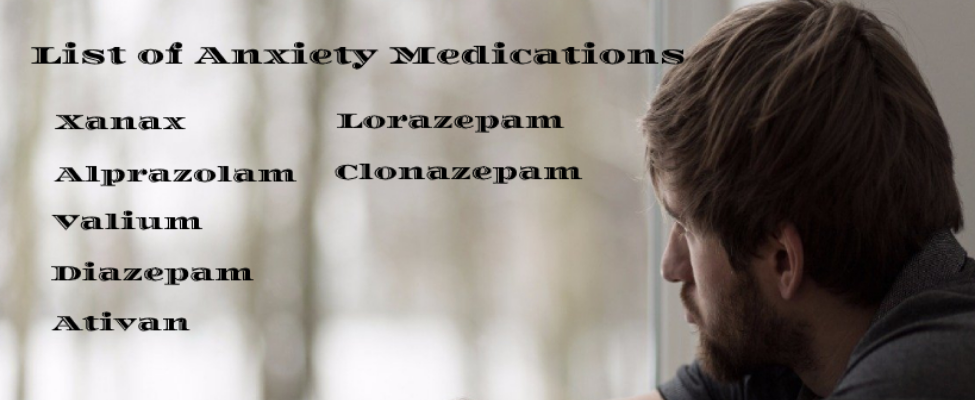
Anxiety disorder refers to the constant feeling of dread and impending doom that a person experiences without any apparent threat. Anxiety includes a sense of fear, worry, and unease. Though everyone experiences some level of stress from time to time, an intense and persistent anxiousness is indicative of an anxiety disorder.
What is Anxiety?
Both adults and children feel anxious from time to time for short periods. The feeling comes with an incredibly stressful situation, like when you have to appear for an important interview or if it’s your first day at a new school, college, or job. People also get anxious when they have to speak publicly.
An anxiety disorder is different from the typical feeling of unease because, unlike other emotions that come and go, people with anxiety disorder experience a constant dread. If a professional diagnose you with an anxiety disorder, you will need medical help managing the issue.
Anxiety Symptoms
Most anxiety symptoms vary from person to person. When a person feels anxious, the body goes on high alert mode, looking for possible danger, and trigger the fight or flight response.
The typical anxiety symptoms include:
- Rapid heart rate
- Insomnia
- Nervousness
- Hyperventilation
- Muscle twitching or trembling
- Heavy sweating
- Gastrointestinal problems
- Lethargy
- Desire to avoid things that might trigger anxiety
- Repeating certain behaviors
- A feeling of panic, danger, or dread
- Difficulty focusing or concentrating
Types of anxiety disorders
Anxiety disorder can be of various kinds, including:
Generalized anxiety disorder – GAD
People with this disorder remain in a state of perpetual worry about the events, even those that are ordinary. The concern is usually extreme in proportion to reality. This stress causes physical symptoms such as an upset stomach, trouble sleeping, or headaches.
Panic disorder
It causes a sudden burst of severe anxiety and terror that peak in a couple of minutes, a phenomenon known as a panic attack. People having panic attack experience the following:
- Chest pain
- Shortness of breath
- Palpitation – Rapid or irregular heartbeat
- A feeling of impending doom
Panic attacks might also make people worry about them happening again. Those with panic disorder tend to avoid situations where they have previously faced an attack.
Obsessive-compulsive disorder – OCD
OCD is a condition characterized by the constant unwanted and intrusive thoughts and stress that causes anxiety. People with OCD know these thoughts are trivial, but they still try to relieve their stress by doing specific tasks or performing certain behaviors or rituals. The odd behavior might include repeated counting, hand washing, checking on things like whether they have locked their house.
Agoraphobia
People with this anxiety disorder fear specific places or situations that make them feel embarrassed, powerless or trapped. These feelings can result in panic attacks. Those with agoraphobia tend to avoid places and situations that might trigger their anxiety.
Post-traumatic stress disorder – PTSD
Post-traumatic stress disorder occurs to a person after they face a traumatic event, such as:
- Accident
- Natural disaster
- Assault
- War
PTSD symptoms include disturbing dreams, traumatic event’s flashbacks, or difficulty relaxing. People having PTSD might also avoid things related to the trauma.
Separation anxiety disorder
This disorder is most prevalent in children. Separation anxiety is a standard part of childhood development, and most kids outgrow it at about 18 months. However, some children might experience some version of this problem for prolonged periods, disrupting their day to day activities.
Selective mutism
It is also another condition typically found in children. Selective mutism refers to the inability of a kid to talk in a specific situation or place. For instance, a child might be unable to speak at school, though they can talk without any problem at home.
other phobias
It is a fear of particular objects, events, or situations that might cause severe anxiety when exposed. People with phobias do everything to avoid the things that might trigger their anxiety. Ceratin phobias like arachnophobia (fear of spiders) might cause a person to experience a severe panic attack when exposed to spiders.
Different Anxiety Medications
The most effective and popular medications used for treating all types of anxiety disorders are the drugs from the benzodiazepine category. These are sedative medicines that reduce physical anxiety symptoms. Benzodiazepine class drugs also encourage relaxation, and these medicines start to show their effects within a few minutes from consumption.
The following are the medications that can help fight anxiety:
Xanax
Xanax is an FDA approved anti-anxiety drug from the benzodiazepine medication family that reduces anxiety by altering the brain’s chemicals. The FDA approved this medicine in October of 1981 for treating anxiety and panic disorder. When you take this medicine, its components reach the brain and binds with the GABA receptors. Gamma-aminobutyric acid (GABA) is a brain chemical or neurotransmitter responsible for carrying messages between neurons.
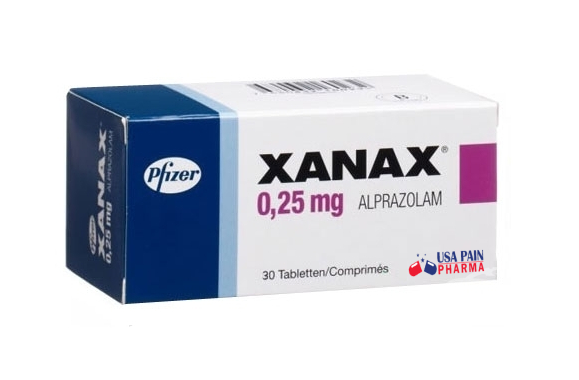
The brain becomes anxious when there is a backlog of information waiting to get delivered to its intended destination. A lack of GABA might hamper this transfer process and make a person anxious. Xanax mimics GABA and aid in the flow of information, which result in an anxiety reduction.
Alprazolam
Alprazolam is the generic version of Xanax. It is also an FDA approved substance for treating anxiety and panic disorder. The active components of Xanax and alprazolam are the same. However, the inactive ingredients or filling might be different.
It works similar to Xanax by attaching to the GABA receptors and speeding up the flow of information. People often prefer using the generic version of the brand name drugs because they are virtually the same, but the generic version costs significantly less than its brand-name counterpart.
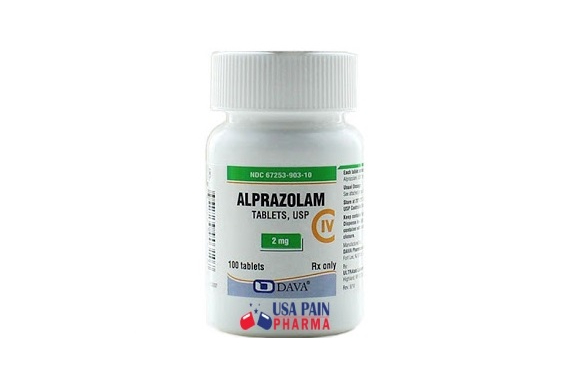
Doctors typically prescribe alprazolam to people with anxiety and panic disorder. It is an effective and quick-acting short-term remedy for the problem.
Valium
Valium is another brand name benzodiazepine medications that can help with anxiety disorders. Approved in 1960, Valium Is the second medicine in the benzodiazepine category invented by Leo Sternbach of the Hoffmann-La Roche at Nutley, New Jersey facility.
This medicine produces a calming effect to reduce anxiousness in a person. This medicine is not limited to anxiety treatment. Doctors also prescribe Valium for treating a multitude of problems, including:
- Anxiety
- Restless legs syndrome
- Difficulty sleeping
- Muscle spasms
- Benzodiazepine withdrawal syndrome
- Alcohol withdrawal symptoms
- Seizures
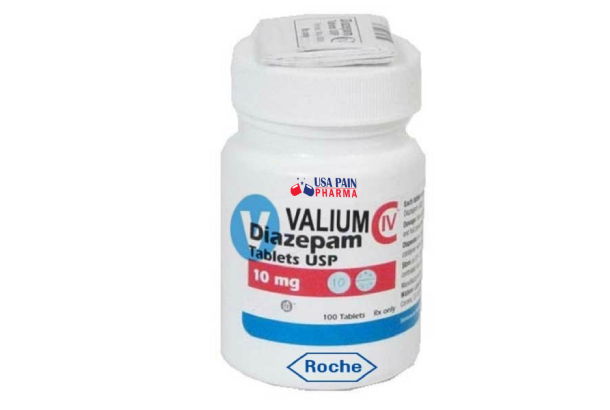
Valium works by altering the brain’s chemical composition. Specifically, it enhances the effects of a particular neurotransmitter knows as GABA.
Diazepam
Diazepam is an FDA approved generic anti-anxiety prescription medication. Like its brand-name counterpart – Valium, diazepam is can also help with other conditions, including anxiety, muscle spasms, seizures, alcohol withdrawal symptoms, restless legs syndrome, sleeping problems, etc.
There is no difference in the working of both the generic and brand-name variant of this drug. However, the brand name medication is often available in more strengths and doses than the generic version.
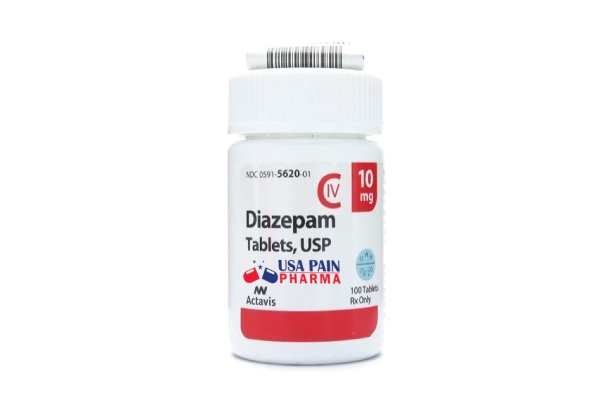
This medicine can show its effects after 15-60 minutes from consuming this drug. The first effect is often sedation and a calming sensation that will help you relax and suppress the anxiety symptoms.
Ativan
Ativan is a prescription sedative medication. It is also called tranquilizing, sedative-hypnotic, or anxiolytic medicine. It is an FDA approved benzodiazepine category drug that can help manage anxiety symptoms. This drug was the 60th most prescribed medicine in the United States in 2007.
Apart from treating anxiety symptoms, Ativan can also help with sleeping problems, seizures, alcohol withdrawal, chemotherapy-induced vomiting, and nausea. Surgeons may also use this drug during surgery to interfere with memory formation and sedate mechanically ventilated people.
This medicine is available in the form of an oral pill that you can take to manage your anxiety disorder symptoms.
Lorazepam
Lorazepam is the generic version of Ativan, which is an effective anti-anxiety medication. This drug is among the classic benzodiazepines invented in 1963; Lorazepam became available to the US’s general public in 1977.
Lorazepam can help manage various medical issues, including anxiety disorder, seizures, sleeping disorders, chemotherapy-induced nausea and vomiting, and alcohol withdrawal.
This medicine is available in the form of oral tablets and liquid. You can use either of these forms to manage your anxiety symptoms as prescribed by your doctor. The tablet and the liquid variant of this drug start showing their effects within 20 to 30 minutes from consumption. The sedating effects of Lerozapm can last for about 6-8 hours.
Clonazepam
Clonazepam is a prescription medication belonging to the benzodiazepine category that can help reduce anxiety and panic disorder symptoms. Clonazepam enhances the activity of a neurotransmitter called GABA to achieve its desired results.
Apart from treating panic and anxiety disorders, this drug can also help manage seizures and movement disorders (akathisia). This drug is available as an oral pill that starts to show its effects within one hour and typically lasts for about 6-12 hours.
Patented in 1960 by Roche, this drug became available in the US in 1975. With more than 20 million prescriptions, clonazepam became the 34th most prescribed drug in the United States.
What are the causes of anxiety?
Experts don’t fully understand the factors that cause a person to develop anxiety. Various life experiences, including traumatic events, can trigger an anxiety disorder in those more prone to anxiety. Genetics trails might also play a role in the development of an anxiety disorder.
Anxiety can also be a result of an underlying medical condition. In some instances, anxiety symptoms are the first indicators of a medical condition. To determine if the anxiety is a by-product of an underlying illness, your doctor might recommend tests for various medical conditions if you are exhibiting anxiety symptoms.
The following are some medical problems that can result in an anxiety disorder:
- Chronic pain
- Irritable bowel syndrome
- Thyroid problem
- Diabetes
- Tumors
- Respiratory conditions – chronic obstructive pulmonary disease (COPD) and asthma
- Alcohol withdrawal
- Alcohol or drug abuse
- Benzodiazepine withdrawal
The probability that your anxiety is a result of an underlying medical issue is high if:
- You didn’t have an anxiety disorder when you were a child.
- You don’t have a blood relative with an anxiety disorder.
- You have a sudden anxiety experience that does not feel related to your life events, and you don’t have any history of anxiety disorder.
- You don’t avoid situations or things on account of your anxiety.
Risk Factors
Some of the things that might increase the risk of developing anxiety disorder are as follows:
Drugs or alcohol
Drug and alcohol abuse and their withdrawal symptoms can lead to new or worsening anxiety.
Blood relatives with anxiety disorder
People who have parents or siblings suffering from an anxiety disorder are more prone to develop this mental health issue.
Personality
People with particular personality types are more likely to develop an anxiety disorder than others.
Stress buildup
A significant life event or a buildup of smaller stressful life scenarios might trigger excessive anxiety.
Stress due to a medical problem
A severe illness or health condition might result in excessive worry about treatment and the future, contributing to anxiety disorders.
Trauma
Childhood trauma in the form of witnessing a tragic incident, becoming a victim of assault, etc., can increase a person’s chances of developing an anxiety disorder. The trauma is not exclusive to children; adults who experience traumatic events like war, violence, etc., can also get an anxiety disorder.
Complications
Anxiety disorders can not only make you worry but can also worsen your physical or mental conditions, including:
- Substance abuse
- Digestive or bowel problems
- Depression
- Poor quality of life
- Social isolation
- Insomnia
- Chronic pains and headaches
- Problem functioning correctly
- Suicide
Prevention
Experts don’t have a way to predict what will cause a person to develop an anxiety disorder. However, by taking some preventative steps, you can reduce the impact of anxiety symptoms. These steps include:
Stay active.
Try taking part in activities that make you feel good about yourself. Indulge in social interactions and caring relationships, which can lessen your stress.
Get help early.
Seeking help early during the onset of anxiety can help you better manage the symptoms. The more you delay the treatment, the harder it will become to treat.
Avoid alcohol and recreational drugs.
Alcohol and drug use can worsen anxiety symptoms. People addicted to these might become anxious if they have to quit them. If you are among those and want to stop using alcohol or drugs, try seeing a doctor or find a support group that can help you.

Leave a Reply